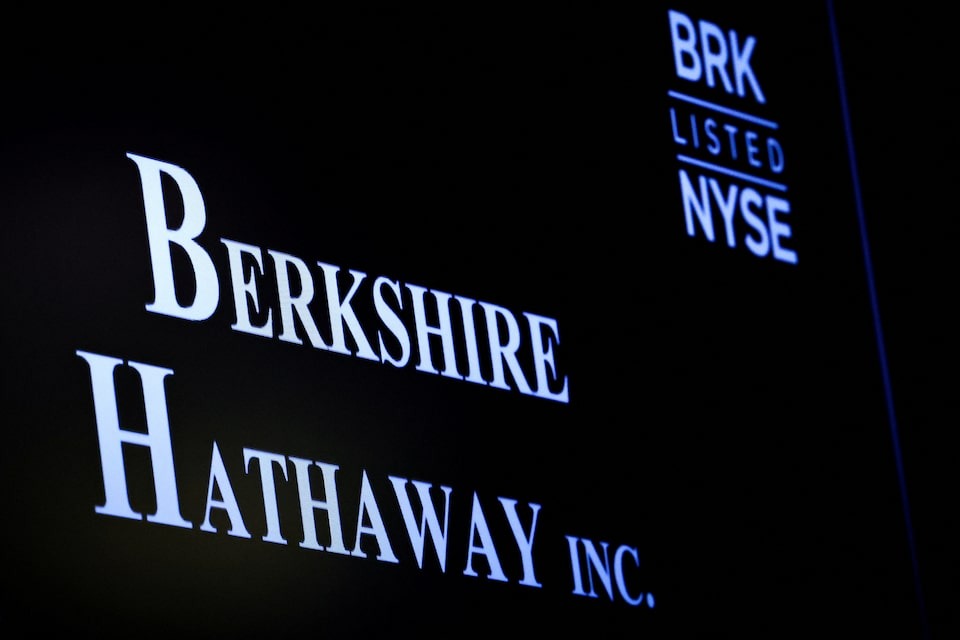
Published :
Updated :

Warren Buffett's Berkshire Hathaway (BRKa.N), opens new tab on Saturday posted a lower operating profit in the first quarter, dented by insurance losses from wildfires and foreign currency changes, while its cash stake grew to a record $347.7 billion.
Operating profit for the Omaha, Nebraska-based conglomerate dropped 14 per cent to $9.64 billion, or about $6,703 per Class A share, from $11.22 billion a year earlier.
The Reuters Tariff Watch newsletter is your daily guide to the latest global trade and tariff news. Sign up here.
Net income was down 64 per cent to $4.6 billion, or $3,200 per Class A share, from $12.7 billion, reflecting unrealized losses on common stock holdings including Apple (AAPL.O).
The cash stake grew from $334.2 billion at year-end, reflecting Berkshire's difficulty finding things to buy.
It repurchased none of its own stock for a third straight quarter, and was a net seller of stocks for a 10th straight quarter, buying $3.18 billion and selling $4.68 billion.
Berkshire said little about how US President Donald Trump's tariff policies affected results.
It said in its quarterly report that "considerable uncertainty remains," and Berkshire was "unable to reliably predict" the potential impact on the company, including as to product costs, supply chain costs and customer demand.
Results included $1.1 billion of losses on insurance claims stemming from the Los Angeles-area wildfires in January.
That caused overall net income from insurance to fall by nearly half, to $1.34 billion.
The wildfire losses offset continued improvement at the Geico car insurer, as increased premiums and reduced accident claims helped push pre-tax underwriting profit up 13 per cent.
Results also included $713 million of currency-related losses as the US dollar weakened, compared with a $597 million gain a year earlier.
The results were released ahead of Berkshire's annual shareholder meeting in Omaha, part of a weekend that draws tens of thousands of people to the city.
Buffett, 94, has led Berkshire for 60 years, transforming it from a struggling textile company into a conglomerate whose businesses include Geico, the BNSF railroad, Berkshire Hathaway Energy, Dairy Queen and See's Candies.
Berkshire shares have far outperformed the broader market in 2025, with many investors viewing the company as a safe haven from potential disruptions to the economy, including from tariffs.
In other businesses, tariffs may have temporarily helped the BNSF railroad, where profit rose 6.0 per cent.
BNSF reported higher volumes for consumer products, including west coast imports and automotive vehicles, which suggests higher demand for shipments before tariffs kicked in.
Berkshire Hathaway Energy also fared better, increasing profit 53 per cent through broad-based gains and a lower loss at the HomeServices real estate brokerage unit.
Profit fell 1.0 per cent at Berkshire's manufacturing, service and retailing businesses.
Berkshire's collection of car dealerships benefited from higher sales of new and use vehicles.
But home furnishings and other retailing businesses struggled with what Berkshire called "increased competition, sluggish demand and impacts of higher economic uncertainty."


 For all latest news, follow The Financial Express Google News channel.
For all latest news, follow The Financial Express Google News channel.